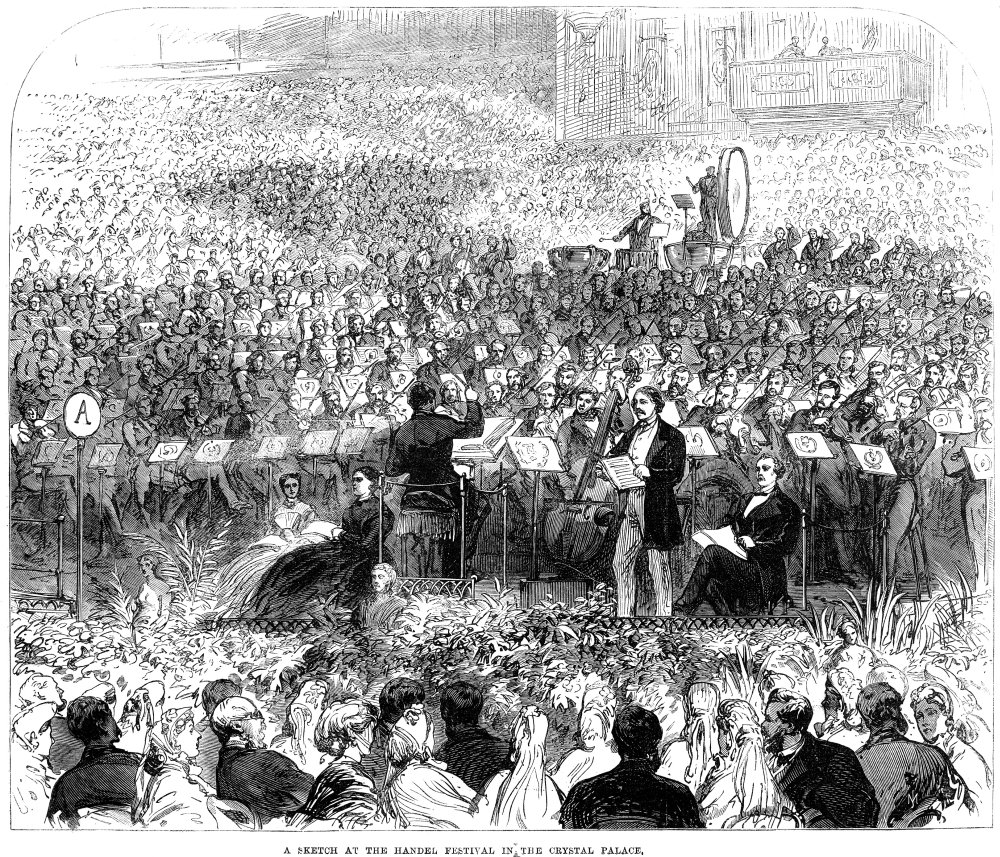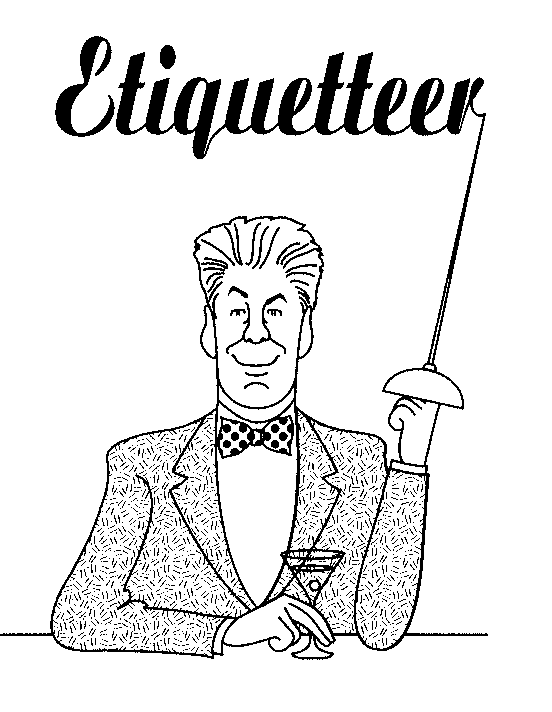The first Sunday of Advent launches non-retail activities celebrated as part of the Christmas Season*, including many many performances of Handel's most famous oratorio, The Messiah. At least part of it is famous, the "Hallelujah Chorus," an indispensable part of Christmas for hundreds of thousands who don't otherwise care a rap for choral music. Aside from its Joyous Blasts of Righteous Celebration, this chorus includes one of the most anachronistic holiday traditions, that of the audience standing during its performance. To Etiquetteer's surprise, the origin of this custom has become lost in the mists of time. Etiquetteer always believed the story of George II being so moved by Handel's music that he stood and moved to the front of the royal box, and we all know that no one remains seated when a ruler is standing. Apparently, this charming story can't be substantiated, according to this thorough Boston Globe article from 2009. Frankly, Etiquetteer doesn't understand how anyone could be against this Rather Charming Tradition. After all, if Charles Ives can compose something like his Yale-Princeton Football Game** that often requires audience participation (playing kazoos and cheering), then how can one object to audience participation that involves less effort?
Etiquetteer's purpose is less establishing What Really Happened than advising present-day Messiah concertgoers what to do. First, decide before you go whether or not you intend to stand. If you are attending with others, solicit their opinions (but keep from having a Tedious Discussion of Disagreement.) Prepare to stand silently - this Rather Charming Tradition is sometimes marred by a loud clattering of seats - by securing your belongings that might fall when you rise, like a program, a coat, a handbag, or an open bag of cough drops. And when the conductor has called forward the Familiar First Blast from the orchestra, rise calmly and remain standing until the last hallelujah. There are those conductors, aware of the tradition, who will turn and cue the audience. Etiquetteer supposes that this eliminates some confusion, but wishes that it wasn't considered necessary.
One thing you must NOT do is Glare Menacingly at those who are standing (if you remain seated) or seated (if you stand up). And most important, don't stand up smugly with an air being better than everyone seated around you who can't figure out what to do.
And if you prefer not to stand, Etiquetteer does not condemn you, but encourages you to close your eyes and think of England. Do not complain about your view being blocked; on this one occasion it's a risk that must be taken.
Etiquetteer should add that this Rather Charming Tradition applies no matter what arrangement of the Messiah is being performed, the more austere and Perfectly Proper arrangement prepared by Handel Himself, or the Ostentatiously Exuberant Cacophany put forward by Sir Thomas Beecham, sadly favored by That Mr. Dimmick Who Thinks He Knows So Much. (While he weeps with Tender Appreciation over every extra phalanx of brass and percussion instruments, Etiquetteer can distinctly hear in the background the kitchen sink that was thrown in. All that seems to be missing are gongs and bagpipes.)
Now run along and have a nice time, and be grateful you don't have to worry about leaving your sword or hoopskirt at home "to make room for more company," as those attending the Messiah premiere did.
*Theologians may point out that the Christmas Season begins liturgically on Christmas Eve, and they are entirely correct. Secular practice, however, points to the day after Thanksgiving, known popularly by its ominous title Black Friday.
**How annoying not to find a recording of this interesting piece of music that does include audience participation. This link seems representative of what's available.


